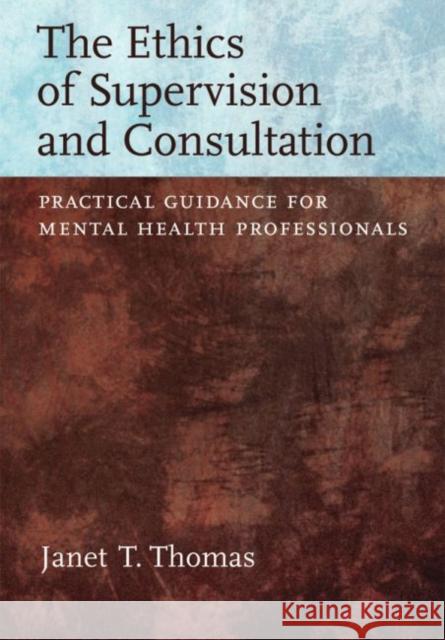The Ethics of Supervision and Consultation : Practical Guidance for Mental Health Professionals » książka
The Ethics of Supervision and Consultation : Practical Guidance for Mental Health Professionals
ISBN-13: 9781433807237 / Angielski / Twarda / 2010 / 282 str.
Clinical supervision and consultation have long been considered integral elements of training and maintaining competency for psychologists and other mental health professionals. One of the primary responsibilities of supervisors is to help with the professional socialization of supervisees; instilling in them an understanding of the relevant ethical principles and standards is a significant component of this charge. Although students may have considerable knowledge from graduate courses in professional ethics, only in the context of clinical work do the nuances and complexities of ethical issues begin to emerge. Supervisors must be present and attentive to capture and fully utilize those proverbial "teachable moment" in which the applications of ethical principles and standards may be recognized and internalized. The potential for misunderstanding and misapplication is significant for novice clinicians. Even seasoned professionals are vulnerable to ethical errors caused by other factors such as mismanaged countertransference, lack of knowledge about evolving standards, and personal problems that compromises objectivity and effectiveness. Supervisors and consultants must provide the guidance necessary to protect the welfare of clients, educate supervisees, and facilitate the professional development of consultees. The Ethics of Supervision and Consultation: Practical Guidance for Mental Health Professionals represents the confluence of ethics with supervision and consultation. Supervision and consultation are treated as discrete areas of specialization. Ethics codes and specialty guidelines are analyzed in terms of their applications to this work. Supervisors and consultants are provided with both theoretical concepts and practical strategies for incorporating ethical principles into their work.











